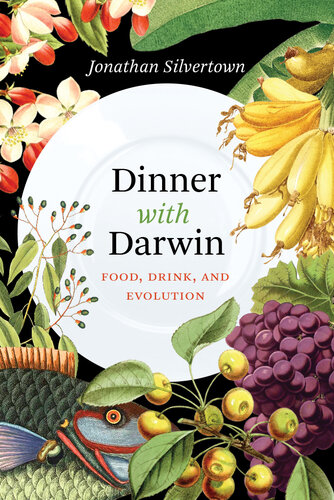
Dinner with Darwin
Food, Drink, and Evolution
- اطلاعات
- نقد و بررسی
- دیدگاه کاربران
نقد و بررسی

August 15, 2017
A science-informed tour of the table, showing how our fare comes to us courtesy of natural selection--and, of course, survival of the fittest.Why does food taste different to different people? Did Australopithecus cook? Why can't some people handle booze--or milk? The taphonomic, paleontological, and archaeological records are full of pointers to the answers to questions like these, but it's only with modern genetic and genomic analysis that full replies emerge. Silvertown (Evolutionary Ecology/Univ. of Edinburgh; The Long and the Short of It: The Science of Life Span and Aging, 2013, etc.) delves in with gusto, opening by noting that "everything we eat has an evolutionary history," a history that opens onto other questions of evolutionary biology. He notes that Darwin's most famous book, On the Origin of Species, opens with a discussion of plant and animal domestication precisely because "Darwin realized that the process of artificial selection that breeders use to produce new varieties is analogous to natural selection." Thus cocktail corn and bespoke pigs. The foods we select in turn select us: the evolutionary record is light on information about vegetarianism, what with the absence of datable bones, but by Silvertown's account, humans may have been cooking food--and eating meat--by the time Homo erectus emerged on the scene nearly 2 million years ago. The author's accessible discussion ranges from shellfish gathering to bread-making to gardening, from issues of food security (which "depends on being able to continually match the challenge posed by constantly evolving diseases") to the genetic basis for taste and genetic variability among populations of food plants, with local adaptations governed by sets of genes charged with protecting plants from predators. Along the way, he ponders matters such as why we drink milk, which raises further issues of distinguishing cause and consequence--which, in turn, teaches novice readers how scientists approach problems. Nothing world-shaking but a tasty nibble for the bookish, science-inclined foodie.
COPYRIGHT(2017) Kirkus Reviews, ALL RIGHTS RESERVED.




دیدگاه کاربران